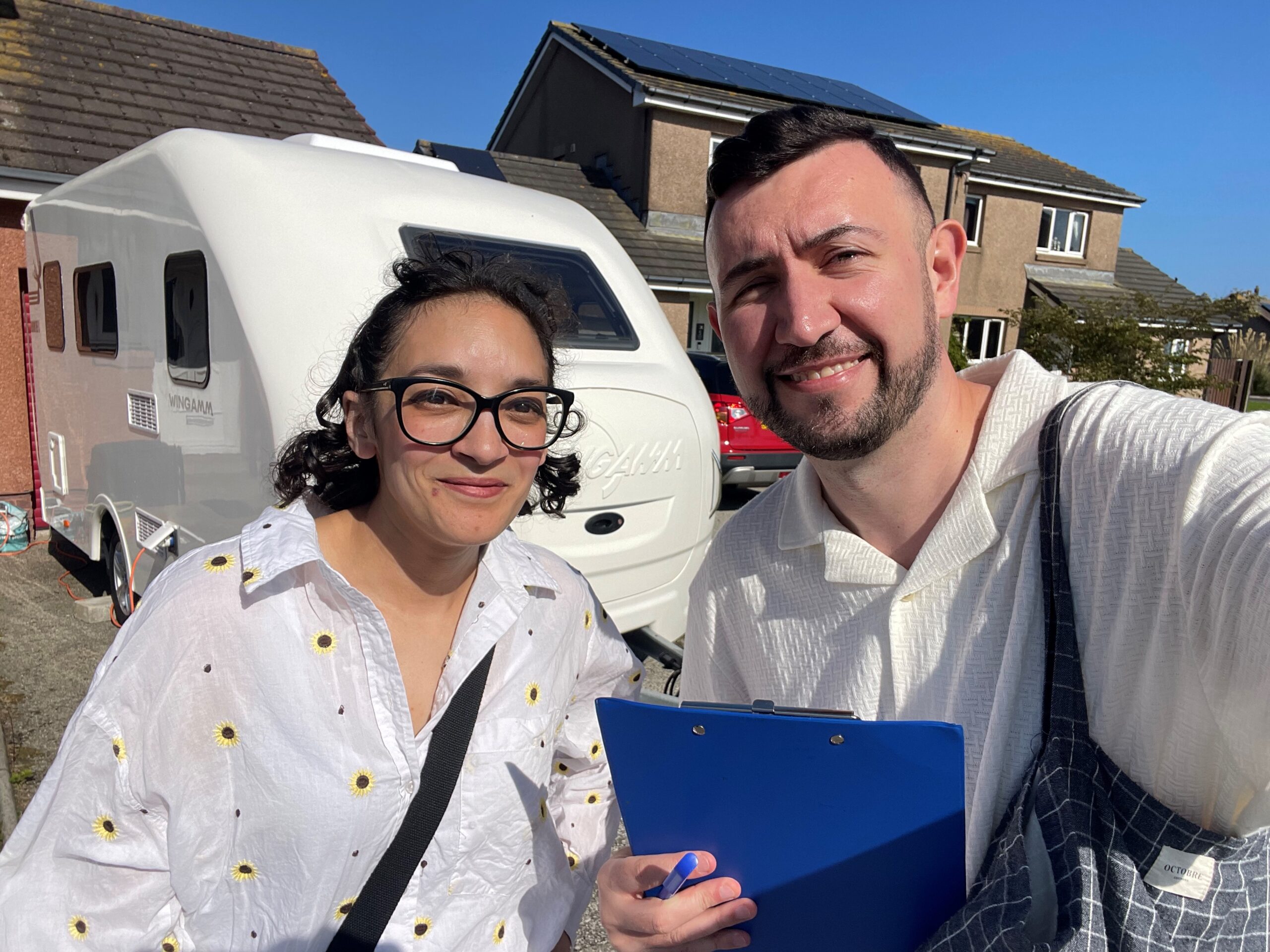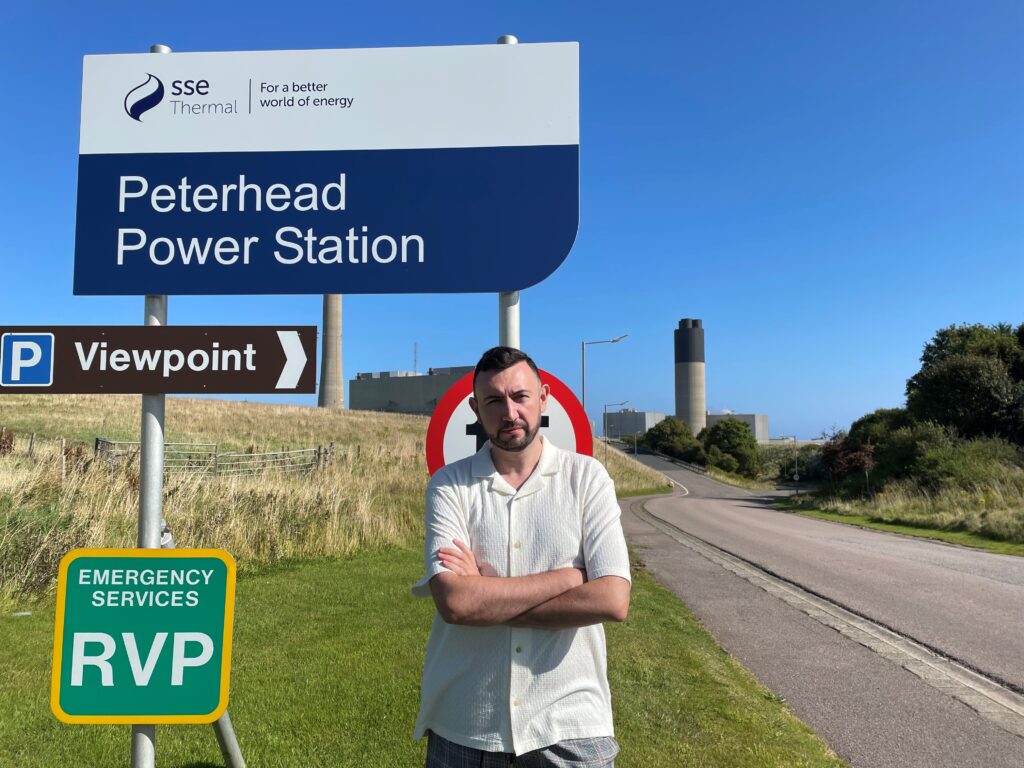
A new team organising in the North East
Yet again, this year has shown how urgent the fight for climate justice continues to be. As this urgency continues to press upon us, the need to expand our team became more pressing.
In July, Michelle and I were recruited as part of efforts to deepen our movement building work in the North East. In many ways, this part of Scotland is on the frontline of the climate emergency. Oil and gas, though declining, still dominates much of the regional economy. Other sectors such as food and drink, fishing, and farming, play a key role as well. All of these contribute to and are impacted by the changing climate.
For many in this part of the world, and for a long time, the climate crisis had felt like a distant problem. Something for another generation or those in far off lands to confront. However, the consequences of dependence on fossil fuels and the emissions they produce are coming home to roost.
Climate impacts close to home
Both the oil price crash in 2015 and the cost-of-living crisis put this into sharp focus. Many lost their jobs in the price crash and many more have struggled as energy prices, linked to the price of gas, soared nearly a decade later. The strength of storms such as Arwen and Babet took many by surprise. Heavy rain and flooding have taken lives and damaged livelihoods across our region. They have made life more difficult for our farmers and the costs to everyone to insure, protect, and repair infrastructure are mounting.
With all of this in mind, the job for all of us in the climate movement may seem daunting. It certainly felt like that for Michelle and me when we started in July.

However, in our first few months we were inspired by the work and stories of many others not just in Scotland, but across the world. We learned, shared, and developed ideas about where to start in tackling the (seemingly) insurmountable task of securing climate justice for all. Our local campaign against the expansion of Peterhead Power Station is where we needed to start.
Knocking on doors in Boddam
Both of us have strong roots in our communities, experiences, and backgrounds that we have drawn upon, but we needed to learn more. So, we decided to conduct some field research in the village of Boddam. The village is the closest settlement to the power station so community views on the site, the expansion plans, and on investment priorities were key to helping us understand how to move forward.
We started with some good old-fashioned door knocking to canvass views on these three areas before following that with an online survey. This allowed us to introduce, or in the case of Michelle who is a Boddam native, to re-introduce ourselves to people in the village as well as collect valuable information.
The results from this research were interesting. For example, one elderly resident, who had lived there their whole life, knew almost nothing about the power station that had been their neighbour for 40+ years. Over 70% of those we spoke with knew about the expansion plans but when questioned further, often linked this to other unrelated industrial developments in the area.

However, the area we had the most compelling responses to were in relation to community priorities. The desire for youth-related services and spaces; school improvements, youth services, play parks, and retaining the local library was palpable.
The need for improved public services and transport, such as a closer rail link and flood mitigation for local roads, as well as an ardent desire to see energy bills go down also came through in the research. There was no wish to see the power station expanded and the previous change of generators for gas has in fact resulted in regular flooding of the main road into the village and of nearby homes.
Community organising in 2025
As a result of our findings, we now know where we need to focus our attention and where to organize as part of the community. As winter bites, we are focusing our time on building alliances with other organizations and groups, in the region and beyond, organizing community events, and in developing a strategy for community organising in 2025.
Community organizing is foundational to building a climate movement that can affect real change. It is slow work, but it is substantive and has the potential to be truly transformational. It is also something we have tangible control over. Instead of waiting for politicians to wake up to their responsibilities, we are building a movement that will, in time, shake them into action.
As we look to the new year, Michelle and I are filled with hope and a determination to get to work. We can only do this with your continued support.
